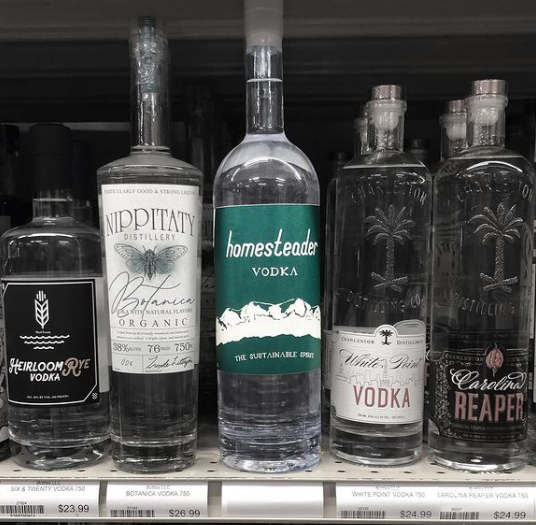Vodka is one of the few versatile spirits which is made from using fermented grains such as wheat, rye, corn, and rice. Together with the main ingredients, vodka requires water, yeast, and malt meal.
According to LuxeDigital, the best vodkas are designed to be enjoyed using a cold glass with just an ice cube. The ice cube helps to bring out the flavor in it. One of such vodka that can make a good cocktail at the bar is the homesteader vodka.
What is the Homesteader Vodka?
The homesteader vodka is a carbon-neutral vodka brand that was created by Charlie Spivey, a local bartender. Not only is it a carbon-neutral brand, it is also free of gluten. This innovation was driven by Spivey’s passion for sustainability. He stated that almost everything about the bottle is recycled.
What “Carbon Neutral” means
According to the Carbon Neutral Protocol, which gives businesses the model to be carbon neutral certified, achieving carbon neutrality can be done by calculating carbon footprints and offsetting them. Through supporting projects on external emission and implementing in-house efficiency measures, the carbon footprint can be reduced to zero.
What this implies is that the production process of the homesteader vodka in both the bottling facility and distillery is sustainable.
How the Homesteader Vodka is Produced
Just like all other high-quality vodkas, the homestead brand is fermented. It is distilled using corn. From the proprietary still, the finished vodka constituent is from a premium sixth distillate. The distillery is defined by simplicity through generational farmland that enables a self-sustaining brand.
The bottle that holds it is also sustainably sourced. According to Spivey, natural materials are used for tamper seals and cork closures. The printing of the labels is done on post-consumer fiber. All these factors make it meet the standard for carbon neutrality.
We share our vodka with the hope of making Earth a better home. Starting at the still, we proudly maintain a high ethic in how we source ingredients to ensure the highest quality vodka. Our project supports generational farmland and with our mill we select what portions of the harvest are worthy of fermenting. We balance the pursuit of excellence with the imperative to conserve and protect nature. Recycling programs reduce emissions and increase sustainability throughout production. Excess emissions are accounted for and offset through certified efforts of land conservation and productive forestry to achieve complete carbon neutrality. From our proprietary still, a premium sixth distillate constitutes the finished vodka. Devotion to simplicity defines our distillery and the singular spirit we present to the market. We are grateful for the prominence of opinion our vodka accrues – for balance, for elegance, for simplicity. The support and loyalty our vodka earns from the culinary community nationwide is reward compounded. Our distillery allocates no finances to advertise our vodka or solicit any patronage, which makes your support all the more meaningful. Homesteader vodka reflects values of environmental stewardship in production so we can enjoy a sustainable spirit as a way, maybe the only way, to drink responsibly.


Where the Homesteader Vodka is Produced
The distillation of homesteader vodka is done in Vermont. The corn used in the distillation is sourced from generational farmers residing in the area. The focus on sustainability, association with local farms in the area, and LEED certification of Vermont distillery makes the location a good place, Spivey said.
Where you can find the Homesteader Vodka
Homesteader vodka can be found in selected restaurants and bars. According to Charleston City Paper, it can now be found in more than 10 local liquor stores. Examples of such stores are Pence’s Liquor and Wine, and Bottles Beverage Superstore.
The homesteader brand supports the conservation and preservation of nature. The recycling program in its production process helps to increase sustainability and reduce emissions.




